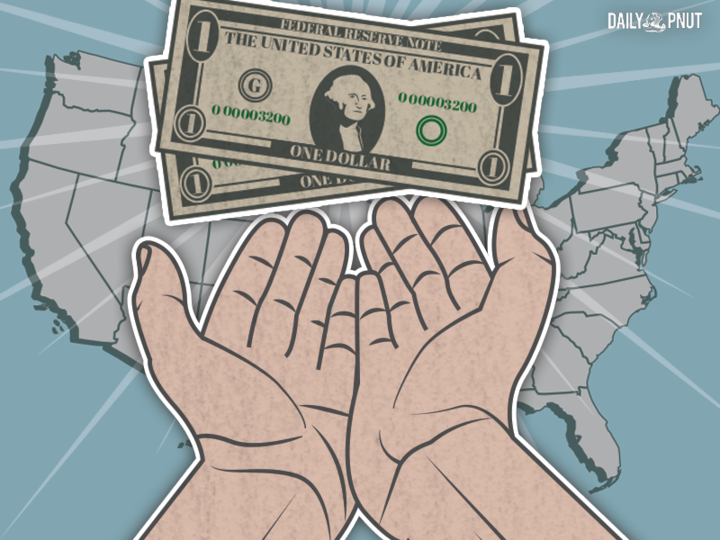The Tinder Effect
June 7, 2019

“You can’t wait for inspiration. You have to go after it with a club.”
“Life is not always a matter of holding good cards, but sometimes, playing a poor hand well.”
– Jack London

The Tinder Effect
The World Health Organization has a “wake-up call” for people using hookup apps. An estimated one million new STIs (sexually transmitted infections) occur every day. That’s more than 376 million new cases annually of four infections: chlamydia, gonorrhoea, syphilis, and trichomoniasis. Not only has there been “no substantive decline” in the rates of new or existing infections since the last analysis in 2012, but drug-resistant STIs are on the rise.
The WHO believes one in 25 people globally has at least one of these four STIs; some people experience multiple infections simultaneously. Unpleasant symptoms can announce the presence of STIs, but many times there are no symptoms at all.
Chlamydia, syphilis and gonorrhoea are bacterial infections, which can be treated and cured with widely available medications. Syphilis requires treatment with a certain type of penicillin which happens to be in short supply, making treatment more difficult. Also on the upswing are cases of so-called “super-gonorrhoea,” which is almost impossible to treat.
Infections can cause serious complications, including infertility, cardiovascular and neurological disease. If a woman contracts an STI when she’s pregnant, it can lead to stillbirth, premature birth, low birth-weight and health problems for the baby including pneumonia, blindness and congenital deformities. Only safe sex education, ready availability of condoms and better access to testing can put the brakes on this global crisis. However when George W. Bush assumed the presidency in early 2001, the US began seeking to restrict references to condoms and comprehensive sex education in United Nations policy documents.

You’re Hot Then You’re Cold, You’re PESCO Then You’re No
- President Trump has been quite vocal about his demands that the EU spend more on its own defense. The EU responded by creating a defense fund and a project for military cooperation and development.
- Now the US is criticizing how that’s being done, and complaining that the moves could harm trans-Atlantic cooperation and prevent American companies from competing for potentially lucrative contracts.
- Last November American and NATO officials approved of the bloc’s plans to spend more money on defense under a program called the Permanent Structured Cooperation Security and Defense, or PESCO. But last week US Ambassador to the UN Kay Bailey Hutchinson warned that Washington didn’t want PESCO or a new EU Defense Fund “to be a protectionist vehicle for E.U.” (NYT)
Running Out Of Food, Water, And Time
- Another devastating drought has hit Somalia, putting two million people at risk of starvation by summer’s end. The UN’s humanitarian chief said the country is facing one of the driest rainy seasons in more than three decades, which is creating a “rapidly deteriorating humanitarian situation.” “If there isn’t a rapid response, there’s going to be a big problem,” he added.
- A severe drought occurred between 2015 and 2017, and communities are still struggling to recover. (Guardian)
108 Protestors Dead In Khartoum
- At least 108 demonstrators have been killed and hundreds more wounded since Sudanese security forces stormed a pro-democracy camp in Khartoum on Monday. Demonstrators vowed to continue peacefully protesting until the ruling military council is removed and those responsible for this week’s deaths are brought to justice.
- The UN and Western countries have condemned the violence, and the African Union, an economic and development group, has suspended Sudan from all union activities until such time as the military hands over power to a transitional civilian authority. (NYT)
Hey Big Brother, Where Should I Eat?
- A 12-acre “smart city” project along Toronto’s eastern waterfront has hit another snag. The controversial Quayside development, a partnership between the city and Google’s Sidewalk Labs, is experiencing mounting delays and increasing privacy concerns.
- This week US venture capitalist Roger McNamee warned that technology companies such as Google cannot be trusted to safely manage the data they collect on residents. “The smart city project … is the most highly evolved version to date of … surveillance capitalism,” McNamee wrote Toronto’s city council. He suggested Google will use “algorithms to nudge human behavior” in ways to “favor its business.” (Guardian) Ya think?
- Why Does Google Know Everything You’ve Bought on Amazon for the Past Six Years?: Sometimes it’s worth pausing to ask the simplest questions. (NYT, $)
Additional World News
- Pentagon Ends Review of Deadly Niger Ambush, Again Blaming Junior Officers (NYT, $) Daily Pnut’s Tim Hsia back in 2008 (practically a lifetime ago): Today’s Junior Army Officers (Small Wars Journal)
- High heels at work are necessary, says Japan’s labour minister: Ministry responds to #KuToo petition calling for end to women having to wear heels at work (Guardian)
- Denmark Election Is Fueled by Anger on Climate and Immigration (NYT, $)
- Vancouver Has Been Transformed By Chinese Immigrants (NPR)
- Macron to Trump at D-day ceremony: fulfil the promise of Normandy: French president praises multilateralism of Nato and EU while offering gratitude to US (Guardian)
- South Korea pollution: Is China the cause of ‘fine dust’? (BBC)
- Niels Högel: German ex-nurse convicted of killing 85 patients (BBC)

Sociologists Weigh In With Their 2 Dollars
- Princeton sociologist Kathryn Edin and University of Michigan social policy researcher Luke Shaefer are highly regarded poverty experts. For much of the last decade they’ve been using survey data to argue that a significant and rising share of American children live in households earning less than $2 in cash income per person. Their research formed the basis of their widely acclaimed 2015 book, $2 a Day.
- But some economists and sociologists have pushed back, arguing the survey data relied upon underestimated the support very poor households get from welfare programs that provide benefits “in kind” rather than through cash. Many people frequently fail to tell surveyors about government programs they benefit from, such as the Supplemental Nutrition Assistance Program (formerly “food stamps”), meaning surveys can “underreport” assistance.
- Three University of Chicago professors have now released the most comprehensive report to date. It concludes that after properly adjusting the data, true $2-a-day poverty is actually extremely rare. (Vox)
- ‘Socialism for the rich’: the evils of bad economics: The economic arguments adopted by Britain and the US in the 1980s led to vastly increased inequality – and gave the false impression that this outcome was not only inevitable, but good. (Guardian)
Additional USA News
- U.S.-Mexico Tariff Talks Continue As White House Meeting Ends Without A Deal (NPR)
- US to label nuclear waste as less dangerous to quicken cleanup: Energy department says labeling some waste as low-level at sites in Washington state, Idaho and South Carolina will save $40bn (Guardian)
- Who Were the Ancestors of Native Americans? A Lost People in Siberia, Scientists Say: Genetic analysis of ancient teeth and bones suggests Native Americans largely descend from a vanished group called the Ancient Paleo-Siberians. (NYT, $)
- 1 Billion Acres At Risk For Catastrophic Wildfires, U.S. Forest Service Warns (NPR)
- Wherever You Are, There’s a State Park Nearby: There are 8,565 of them across the country, meaning a place to take a hike, fire up some s’mores or simply recharge is often just around the corner. In a year of traveling, we visited 53 of them. (NYT, $)
- ‘Where was the Lord?’: On Jefferson Davis’ birthday, 9 slave testimonies: The voices of five men and four women, once held in human bondage, interviewed in Alabama in 1937. (Montgomery Advertiser)

Push Us To The Limit
- Duke University scientists have conducted a study they say demonstrates the ultimate limit of human endurance. The scientists analyzed energy expenditure in extreme athletic events like the 3,080 mile Race Across America, the Tour de France, and other elite events.
- They found a pattern between the length of a sporting event and energy expenditure — the longer the event, the harder it is to burn through calories. People can go far beyond their base metabolic rate (the calories the body burns through when it is relaxing) while doing a short bout of exercise, but it is unsustainable in the long term. They concluded human endurance is capped at 2.5 times the body’s resting metabolic rate, or 4,000 calories a day for an average person.
- The researchers also said pregnant women were endurance specialists, living at nearly the limit of what the human body can cope with. (BBC)
- Additional song: Eagles – Take it to the Limit
Weekend Reads
- Microplastics Have Invaded The Deep Ocean — And The Food Chain (NPR)
- What If We Gave Up on the Stars?: The night sky is already dotted with shiny satellites and other artificial lights. One day, maybe that’s all there will be. (The Atlantic)
- Monsters in the dark: The Universe’s biggest galaxies could hold the key to the birth of the cosmos. Why are these behemoths so hard to find? (Aeon)
- Part-time work is humane and should be respected and encouraged (Aeon)
- Now we’re talking: Even though he’s barred from practicing law in several states, absolutely no one can stop him from roasting his enemies. (HuffPost)
